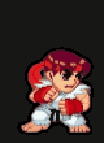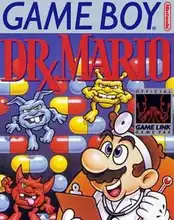Level Up Your Life: What Healthcare Can Learn From Retro Games
Remember the satisfying 'ding' when you leveled up in an old RPG? Or the pure joy of finally beating that impossible boss after hours of practice? Retro video games, with their sometimes clunky graphics and simple mechanics, had a magical way of keeping us hooked. They made complex tasks feel achievable and rewarded progress in tangible ways. Now, compare that feeling to navigating the world of healthcare. Often confusing, sometimes frustrating, and rarely offering that immediate, rewarding feedback loop.
It makes you wonder, what if healthcare took a few cues from the pixelated classics we grew up with? What if managing your wellness felt less like a chore and more like a quest with clear goals and awesome rewards?
Leveling Up Your Health: The Game Progression Model
Think about your favorite retro RPG. You start weak, maybe just swinging a rusty sword. But you fight monsters, gain experience points, and slowly but surely, you level up. Your stats improve, you learn new skills, and you can tackle tougher challenges. This sense of progression is incredibly motivating.
Healthcare often lacks this. You might go for a check-up, get some advice, maybe a prescription. There's rarely a clear "experience bar" for your health.
- Clear Goals & Feedback: Games excel at setting immediate goals (defeat this enemy) and long-term ones (save the princess). Healthcare could offer more definitive, trackable goals. Imagine an app that shows your "Heart Health XP" increasing based on exercise, or a "Nutrition Skill Tree" unlocking bonuses as you make healthier choices. Seeing those numbers go up, like your Strength or Dexterity stats on a character sheet, is powerful.
- Skill Trees & Information: Remember those sprawling skill trees or complex inventory screens? Good games presented information in a way that was initially simple but allowed for depth. Healthcare information can be overwhelming. What if managing a condition had a visual "skill tree" showing the impact of different treatments or lifestyle changes?
- The Grind Can Be Fun: Let's be honest, leveling up in RPGs often involved a bit of a grind. But the process was engaging. Fighting monsters, exploring dungeons, finding loot – it was part of the fun. Healthcare often feels like just the grind, without the engaging parts. How can we make the process of staying healthy more interesting?
Keeping Players Hooked: Engagement Mechanics 101
Beyond just leveling, retro games used clever tricks to keep us coming back. From arcade high scores to hidden secrets, engagement was key.
- Variable Rewards (Loot!): The thrill of opening a chest in Zelda or getting a rare drop in Diablo was pure dopamine. This is the power of variable rewards. Could healthcare incorporate this? Maybe a health app gives you a chance to win a small prize for hitting a step goal, or completing a weekly wellness challenge enters you into a raffle. It's like finding a super mushroom just when you need it.
- Quests & Achievements: Games are built on quests. Go here, fetch this, defeat that. Each completed quest gives a reward and moves the story forward. Healthcare could frame health goals as quests. Complete a "Hydration Quest" for a week, unlock an achievement. Reach a fitness milestone, get a virtual badge or even a small discount on health products.
- Time-Limited Events: Remember those arcade tournaments or limited-time events in early online games? They created urgency and excitement. Could healthcare use timed initiatives? "Sign up for our flu shot event this week and get a bonus health tip!" or a month-long "Step Challenge" with a leaderboard.
- Satisfying Visuals & Sounds: Even with limited pixels, retro games made actions feel impactful. The satisfying 'thwack' of a sword, the flash of a spell, the clear animation of collecting an item. Healthcare apps and educational materials are often dry. Better design, satisfying animations (imagine a health bar filling up with a cool retro graphic!), and positive sound cues could make interacting with health tools much more pleasant.
Healthcare in the Digital Realm: Integrating Health into Our Digital Lives
The line between our digital lives and physical health is blurring. We spend hours online, often gaming. Competitors point out that healthcare is starting to appear in these spaces.
- Digital Therapeutics: Games are already being used directly as medical interventions, like games designed to help manage ADHD. This is like using a specific game cartridge to fix a particular issue, rather than just playing for fun.
- Health as a Game Mechanic: Remember how games like Pokemon Go accidentally got people walking miles? Or early exercise games on systems like the NES (Power Pad!)? Modern games and apps can integrate physical activity or healthy habits directly into gameplay or rewards. Imagine an RPG where your character's stamina regenerates faster if you log healthy habits in a companion app.
- Simulations & Learning: The infamous World of Warcraft "Corrupted Blood" incident showed how virtual worlds can even simulate real-world health events. Games can be powerful tools for teaching about health, nutrition, or disease prevention in a safe, interactive environment.
Bringing it Together
Looking back at our old game consoles, it's clear that engaging design isn't about complex graphics; it's about understanding human motivation. Healthcare, while serious and complex, could desperately use a dose of that retro gaming magic. By adopting principles of clear progression, rewarding engagement, and seamless integration into our digital lives, managing our health could feel less like a frustrating chore and more like a fulfilling, rewarding adventure – one level at a time.
FAQ: Retro Gaming & Healthcare
- Q: What does retro gaming have to do with healthcare? A: Retro games were masters of engagement and motivation through simple mechanics like leveling up, clear goals, and satisfying rewards. Healthcare can learn from these principles to make health management more engaging and less intimidating for patients.
- Q: What does "gamification" mean in healthcare? A: Gamification means applying game design elements and game principles (like points, badges, leaderboards, challenges) to non-game contexts, such as health apps or wellness programs, to encourage participation and motivate behavior change.
- Q: Are there real examples of games used in healthcare? A: Yes, there are "digital therapeutics" which are video games prescribed by doctors to treat conditions like ADHD. Also, many fitness apps use gamification, and games like Pokemon Go or exercise games motivate physical activity.

